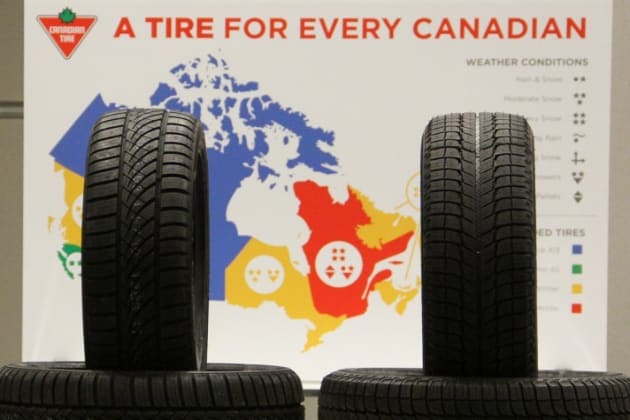Filed under:
It’s that time of year again, as we prepare for the winter driving season and many drivers debate when (and if) they should switch to winter tires. Automobile technology is changing and cars are performing better because of things like ABS brakes and traction control. Still, those features are only as good as the grip of the vehicle’s tires, especially in cold and snowy conditions.
“When choosing the right tire for the winter season, the best all-season tire doesn’t compare to the worst winter tire,” says John Morin, service manager for Canadian Tire’s West Toronto store.
The fact is, the term ‘all-season’ is really a misnomer when it comes to tires. They’re consistently out-performed by dedicated winter tires that increase control and decrease the average stopping distance at 80 km/h by as much as 20 metres. Snow tires are identified by a mountain/snowflake symbol branded on the sidewall.
For those wondering when you should install your winter tires and officially make the switch, you should do so before temperatures begin to consistently dip into the single digits, as industry experts agree conventional all season tires don’t perform properly below 7 degrees Celsius.
If you’ve been thinking about making the switch to winter tires before the snow, click here to read our handy guide to answer some of your common questions.
Winter tires vs. all season: When and why to make the switch originally appeared on Autoblog Canada on Tue, 14 Oct 2014 14:00:00 EST. Please see our terms for use of feeds.
Permalink | Email this | Comments
Read more here:: Ownership & Repair

